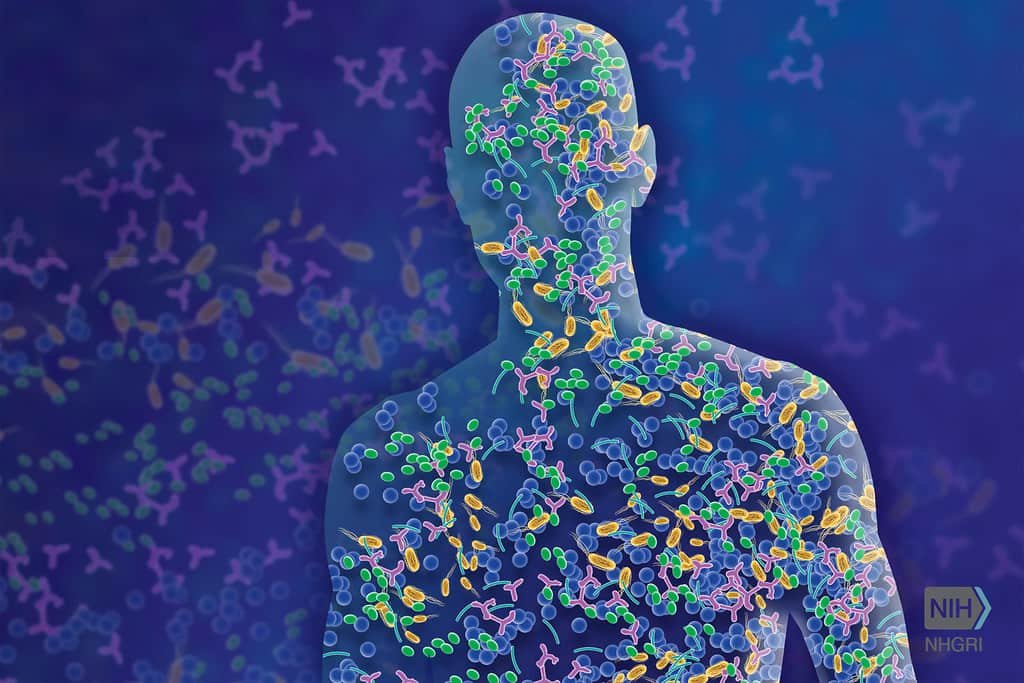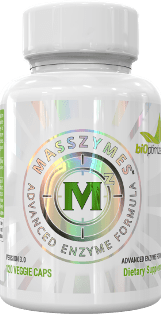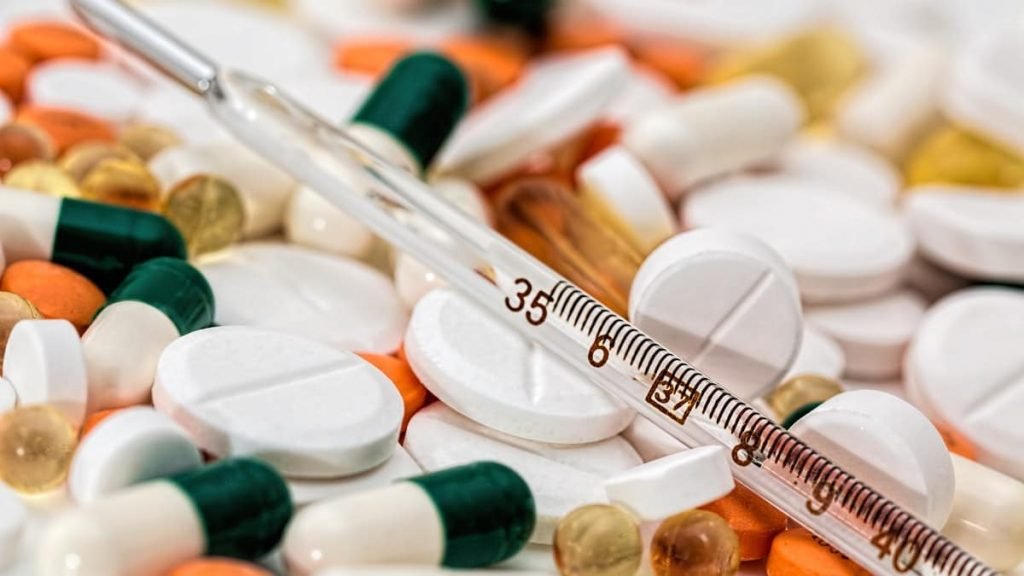10 Questions And Answers About the Human Microbiome

In this article we are going to answer 10 common questions about the human microbiome.
The human microbiome is the collection of all microorganisms that live on or inside the human body. It includes bacteria, fungi, and viruses. According to researchers, our bodies consist of over 37 trillion cells, and more than 90% of those cells are microbial [1].
In other words, we are mostly microbes!
The microbiome is important for human health, as it helps to protect the body from disease, aids in digestion, and even influences our mood and behavior.
What is the human microbiome?
The human microbiome is the set of microorganisms (viruses, bacteria and fungi) that live inside and around us. It is the trillions of microorganisms with which we “interact” every day from the moment we are born until we die.
The sheer size of the microbiome makes scientists believe that it is an illusion that we are alone.
How is the microbiome created?
Gradually, from birth onwards. The first exposure to microorganisms occurs during birth.
Breastfeeding also plays an important role in the development of the microbiome, as babies who are breastfed have a different microbiome than those who are not. Even babies who have been born with caesarean section have a different microbiome than those who have been born vaginally. [2]
The environment, diet, and lifestyle also play a role in shaping the microbiome.
Researchers estimate that by the end of our second year of life, we have acquired our microbiome.

MassZymes Enzymes
THE STRONGEST ENZYME FORMULA EVER: MassZymes (full review) is a full-spectrum enzyme formula with more protease than any other commercially available, with 5 different kinds of protease. Plus, it contains all the other key enzymes you need for optimal digestion.
How stable is the microbiome?
Does what we initially acquire remain unchanged over time?
The microbiome tends to remain stable; however, it changes depending on our life circumstances and our diet.
For example , the microbiome of a person who lives in a rural area and eats a lot of fresh produce will be different from the microbiome of an urban dweller who lives on processed foods.
Also, a key parameter for changing a person’s microbiome is the intake of antibiotics.
What is the effect of antibiotics on the microbiome?
Antibiotics not only kill the pathogen for which they are prescribed; they also destroy whole groups of bacteria, both useful and dangerous, at the area of infection as well as across the body. [3]
In other words, we may be taking antibiotics for a respiratory infection, but the antibiotics will kill the agent causing the infection along with all the bacteria sensitive to them in our whole body.

This mass killing of micro-organisms disrupts the balance of the microbiome: other micro-organisms come in to fill the vacancies created and in effect after a strong antibiotic intake we are literally ‘different people’ in terms of our microbial composition.
What consequences can this drastic change have on a person’s microbiome?
The consequences largely depend on the original composition of the microbiome. As a person’s microbiome is unique and the consequences are unique and difficult to predict (at least at the present time).
According to the findings so far, the microbiome may recover after a certain amount of time, or it may never recover. The fact that the microbiome may never recover, i.e. never return to its original state, is not necessarily bad; but its change will certainly affect us.
Why?
The more researchers study the microbiome, the more they realize that we are in a kind of partnership with our microbes. For example, we provide them with shelter and food, especially those that live in our gastrointestinal tract.
Many of them break down foods that we are unable to break down and so we get valuable nutrients. If you are intolerant to certain foods, researchers say, it is very likely that you do not have the microorganisms in your microbiome that could break them down.
Read Also: Bioptimizers MassZymes 3.0 Review – Best Enzymes Supplement?
Is the effect of our microbiome on our lives just about diet?
No! Although the gastrointestinal microbiome is what most researchers have targeted, diet is only one aspect.
Researchers want to know exactly how the microbiome affects our immune system and what its role is in a multitude of diseases, from cancer and allergies to multiple sclerosis, autism and schizophrenia.
If the microbiome is associated with disease, could it also be exploited diagnostically?
This is one of the scientists’ goals: to be able to calculate, through analysis of the microbiome and its metabolites, a person’s chances of becoming ill – and to take preventive measures.
The more researchers study the microbiome, the more they realize that we are in a kind of partnership with our microbes.
Does modern lifestyle affect the microbiome and how?
Experts estimate that the microbes that people in developed countries come into contact with have changed dramatically in recent decades.
The causes of the change are said to be the
According to one theory, the highly sterile environment in which we live today prevents the normal development of our immune system, which explains the observed increase in diseases such as allergies, asthma and irritable bowel syndrome. [4]
But the impact of modern living on the microbiome is not just about disease. It may also explain why people in developed countries are taller and have a higher IQ than their ancestors. All these traits are said to be linked to changes in the composition of the microbiome.
Can we change our microbiome?
Yes! As mentioned above, a key parameter for changing a person’s microbiome is the intake of antibiotics, excessive hygiene, breastfeeding etc.
But there are other parameters, such as diet, hygiene, stress, exercise and age.
All these can affect the composition of our microbiome and consequently our health.
The impact of modern living on the microbiome is not just about disease. It may also explain why people in developed countries are taller and have a higher IQ than their ancestors.
So should we all start taking probiotics?
This is still a matter of debate among experts. Some say that probiotics are good for us, while others caution that we do not yet know enough about their long-term effects.
In any case, it is important to remember that the microbiome is unique to each individual. So what works for one person may not work for another.
Probiotics are live microorganisms that are said to have a positive effect on our health, especially on our gastrointestinal tract. They can be found in some fermented foods such as yogurt, sauerkraut and pickles. They are also available as dietary supplements.
Related: BiOptimizers P3-OM Probiotics Review [Science Based]
Final Take
The best way to find out is probably to experiment and see for oneself. But as with all things related to our health, it is always best to consult a doctor beforehand.
The human microbiome is considered the “forgotten organ” because scientists are only now beginning to understand its importance.
